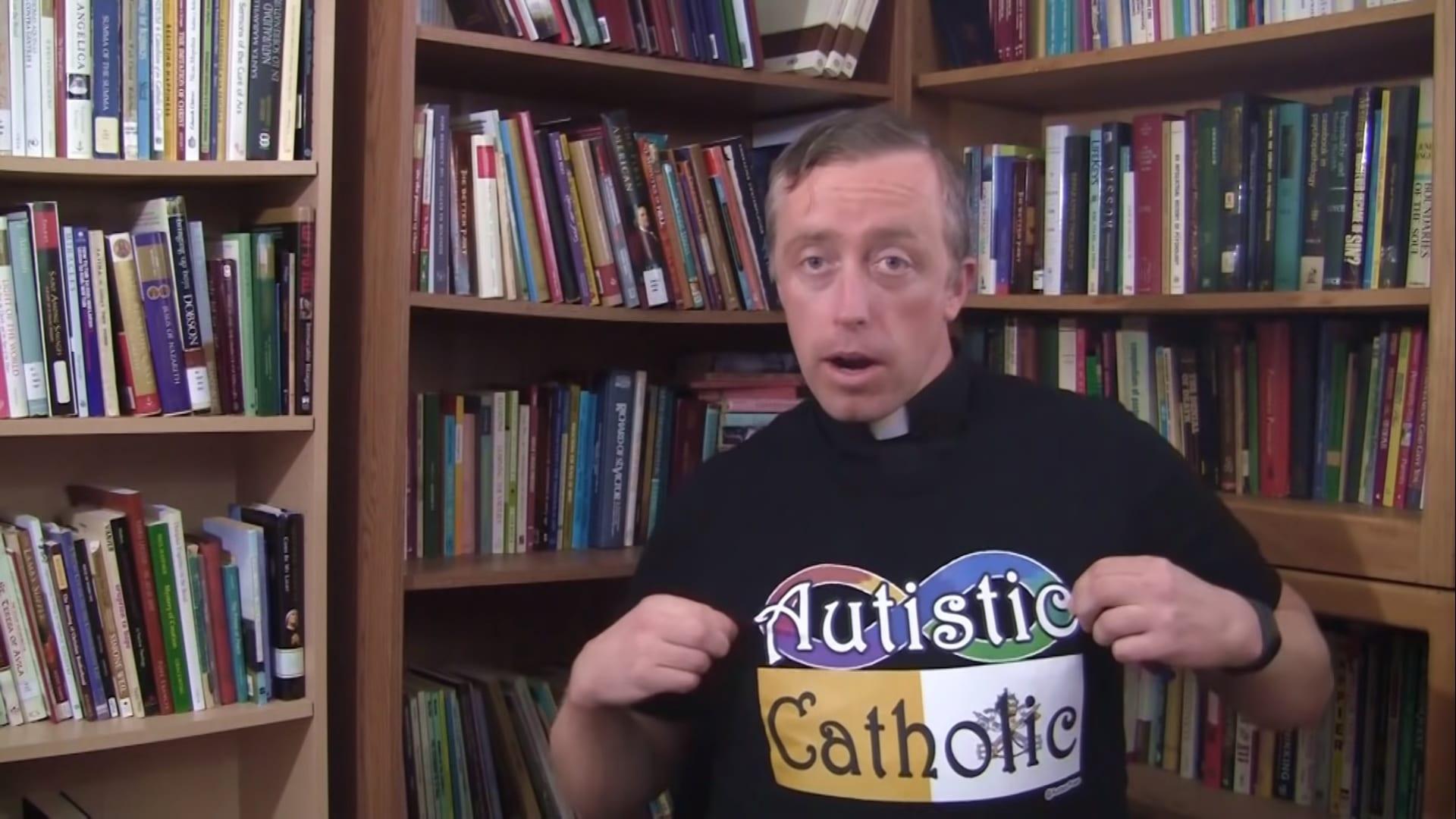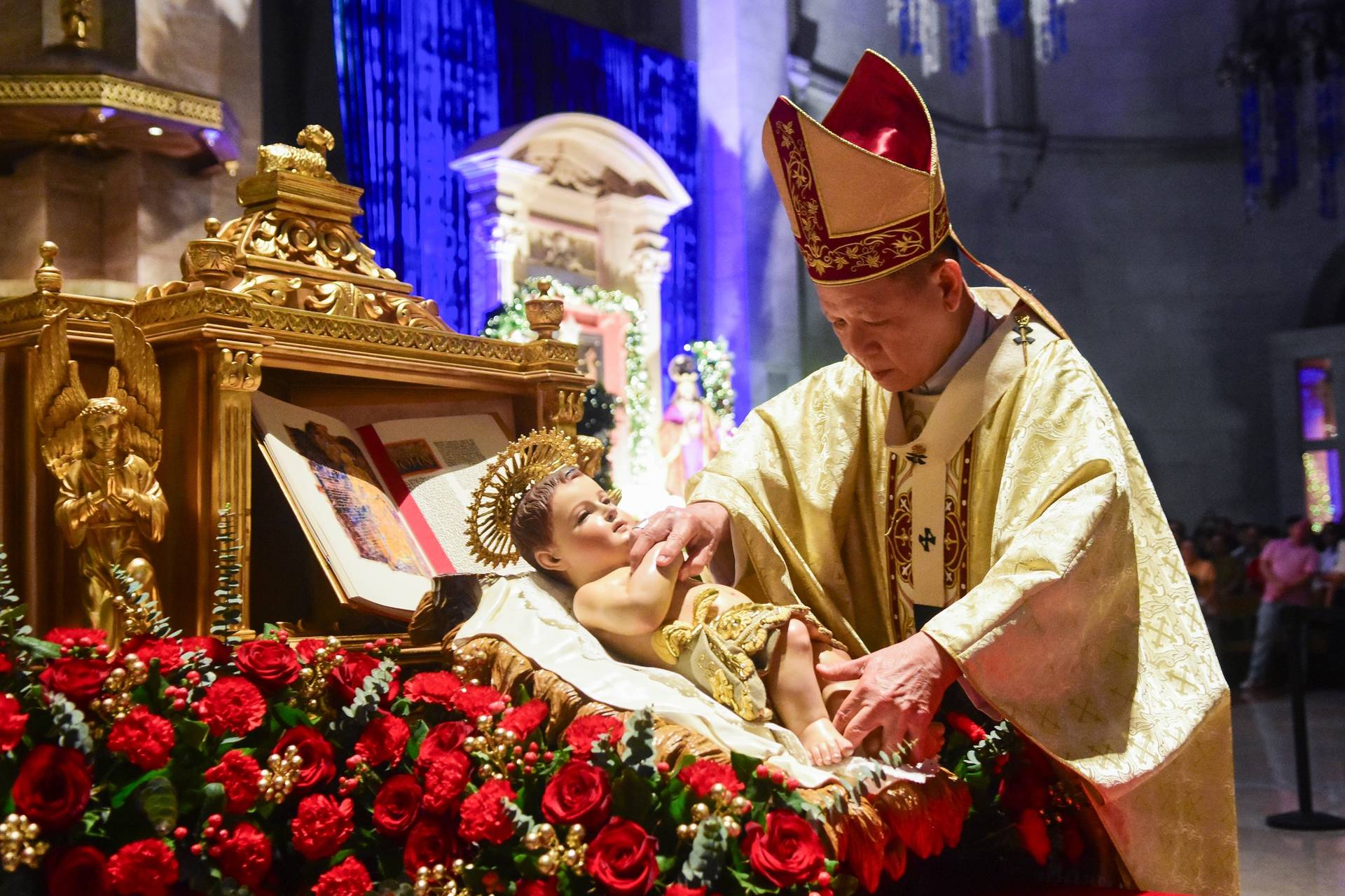ROME – Three years ago, struggling with his assignment as a school chaplain and youth minister, Father Matthew Schneider sensed something was off. After testing with a psychologist, he received a diagnosis most adults definitely don’t expect: He’s autistic.
Disappointed and fearful about the implications for his future and his ministry as a priest, Schneider began to read up on his condition. As he learned more about it, he says now, things that had always left him feeling “different” began to make sense.
The more he studied autistic learning and thinking patterns, the more excited he got about propelling his own ministry in a direction that would both suit his abilities and help him reach out to other autistic people – a community which, according to some studies, is less likely to be religious than the social norm.
Speaking to Crux on the April 2 celebration of World Autism Awareness Day – the very day Schneider decided to go public with his diagnosis – he said he hopes to use his autism as a platform to help re-shape resources for the Catholic faith to be more appealing and understandable for the autistic community.
“A lot of times we’ve built catechism programs and prayer books without considering how autistics (think),” he said, adding that “our process of thinking is a little different, and we’ve built all these [tools] without thinking about autistics and how they would process it.”
If the Church can provide the same materials in a way more suited to an autistic mind, it will be a resource for parishes or dioceses wanting to launch a catechesis program for autistic children or parishioners, he said.
These resources would also be a tool for autistic youth “who are thinking about their faith, whether they are thinking about coming in or they’ve had a bad experience and are thinking about leaving, to keep them Catholic,” Schneider said.
“(As) someone who has the same kind of thinking patterns, which aren’t the same as the rest of society, I’m able to present the faith in a way that corresponds. It’s still the Catholic faith, just worded or phrased or explained slightly differently,” he said.
Originally from Calgary, Canada, Schneider was ordained a priest with the Legionaries of Christ in 2013 and has worked in parishes and schools throughout North America.
He decided to go public on World Autism Awareness Day, publishing a video on social media in which he describes his struggles with always feeling “a little different” or that he didn’t “fit in.” Though he had good grades and ended up studying engineering, he said he was never “cool.”
Speaking of the growing numbers of people diagnosed with autism, Schneider said he believes part of this is because the criteria for detection have changed, and that had they been in place in the 1980s he would have been diagnosed as a child.
Like many autistic people, Schneider has a sharp mind, a good memory and has gained a reputation for his encyclopedic manner of retaining and regurgitating facts. However, he also struggles with social communication and non-verbal cues.
It was due to these difficulties, he said, that he was asked to leave his position as chaplain and youth minister at a school just one year into a three-year assignment. Though the experience was painful, Schneider said he believes it was ultimately a blessing since it led to his diagnosis.
After enduring three days of grueling testing with a psychologist in late 2015, he received the results in January 2016.
“I can tell you that on the drive home that day I was feeling really down about it, but as I looked into it and read up over the following weeks and months, I realized that, oh, this is probably why I’ve had some of these struggles,” he said, explaining that eventually the diagnosis became a freeing experience, “but in the moment it was not. It was hard.”
Three years later, he’s enthusiastic about the possibilities, saying he’s looking for an intellectual field “where the difficulties I do have will still be there, but it won’t be the same as if I were a chaplain or a parish priest.” Instead, he is hoping to find a place where strong abilities with memory and with logical reasoning “will better express themselves.”
“It’s finding the ministry that will work within our community’s mission but also where I’m going to excel, because you want a priest in a community to excel, not to continue in a ministry they’re not suited to,” he said.
For the moment, Schneider said he wants to focus on his online ministry, which he is carrying out through two Twitter accounts – his public account @FrMatthewLC and an anonymous account with the handle @AutisticPriest – as well as through brief, 2-minute Youtube videos he’s planning to launch discussing autism and the Catholic faith.
Schneider said he also hopes to be a seminary professor once he finishes his doctorate, which he expects will take about two years, and is interested in studying more about the theology of disability, which has seen a growing interest in Rome, with several conferences on the topic in recent years.
“I think there are a number of autistic people who are hiding in plain sight,” he said, voicing hope that being open will help break down the stigma.
Many times people might encounter a person, whether a university professor or another professional, “who’s a little off, but everybody loves this professor,” Schneider said, adding that often “that ‘little-bit-off’ is because he’s autistic.”
“That’s the type of personality I have. So I think there’s a stigma, but I think there are a lot of people who are autistic who have done great things, and I hope I can do great things,” he said.

















